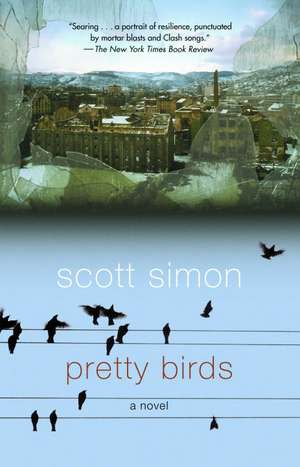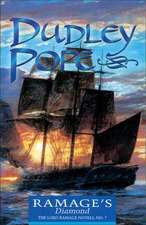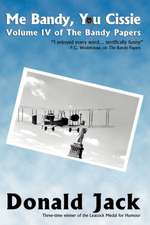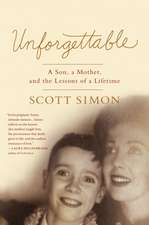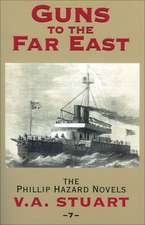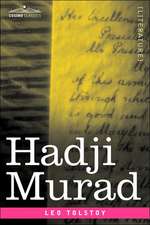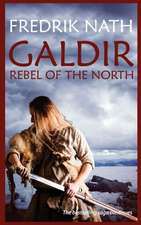Pretty Birds
Autor Scott Simonen Limba Engleză Paperback – 30 apr 2006 – vârsta de la 14 până la 18 ani
In the spring of 1992, Irena Zaric is a star on her Sarajevo high school basketball team, a tough, funny teenager who has taught her parrot, Pretty Bird, to do a decent imitation of a ball hitting a hoop. Irena wears her hair short like k. d. lang’s, and she loves Madonna, Michael Jordan, and Johnny Depp. But while Irena rocks out and shoots baskets with her friends, her beloved city has become a battleground. When the violence and terror of “ethnic cleansing” against Muslims begins, Irena and her family, brutalized by Serb soldiers, flee for safety across the river that divides the city.
If once Irena knew of war only from movies and history books, now she knows its reality. She steals from the dead to buy food. She scuttles under windows in her own home to dodge bullets. She risks her life to communicate with an old Serb school friend and teammate. Even Pretty Bird has started to mimic the sizzle of mortar fire.
In a city starved for work, a former assistant principal offers Irena a vague job, “duties as assigned,” which she accepts. She begins by sweeping floors, but soon, under the tutelage of a cast of rogues and heroes, she learns to be a sniper, biding her time, never returning to the same perch, and searching her targets for the “mist” that marks a successful shot. Ultimately, Irena’s new vocation will lead to complex and cataclysmic consequences for herself and those she loves.
As a journalist, Scott Simon covered the siege of Sarajevo. Here, in a novel as suspenseful as a John le Carré thriller, he re-creates the atmosphere of that place and time and the pain and dark humor of its people. Pretty Birds is a bold departure, and the auspicious beginning of yet another brilliant career for its author.
From the Hardcover edition.
Preț: 120.71 lei
Nou
Puncte Express: 181
Preț estimativ în valută:
23.10€ • 24.18$ • 19.11£
23.10€ • 24.18$ • 19.11£
Carte disponibilă
Livrare economică 17-31 martie
Preluare comenzi: 021 569.72.76
Specificații
ISBN-13: 9780812973303
ISBN-10: 0812973305
Pagini: 351
Dimensiuni: 128 x 203 x 2 mm
Greutate: 0.32 kg
Editura: Random House Trade
ISBN-10: 0812973305
Pagini: 351
Dimensiuni: 128 x 203 x 2 mm
Greutate: 0.32 kg
Editura: Random House Trade
Notă biografică
SCOTT SIMON is the host of National Public Radio’s Weekend Edition with Scott Simon. He has covered ten wars, from El Salvador to Iraq, and has won every major award in broadcasting, including the Peabody and the Emmy. His memoir, Home and Away, rose to the top of the Los Angeles Times nonfiction bestseller list. His second book, Jackie Robinson and the Integration of Baseball, was named Barnes & Noble’s Sports Book of the Year. He lives in Washington, D.C., with his wife and daughter.
From the Hardcover edition.
From the Hardcover edition.
Extras
1. November 1992
Irena Zaric put her last stick of gum in her mouth, winked at a bird, and wondered where to put her last bullet before going home. Sometimes she conferred with the pigeons that flocked along her arms. “What have you seen, boy? What’s going on over there?” The birds were cohorts; they roosted together.
The grim sky was beginning to open into a briny blue. The first winds of the day from the hills blew in with a bite of sun and a smell of snow. It was the time of day when sharp sounds—the scorch of a shot, a scream, a humdrum thud—could be heard best in the hollow streets. After a long night alone in the city’s rafters, Irena was consoled by the swish of the pigeons. They reassured her: she wasn’t the only one left in town.
The birds were tired and, she imagined, cranky from hunting for tree limbs to settle on. Their feathers clapped in the stillness. People with hatchets and kitchen knives had hacked down most of the city’s trees to burn them for heat and cooking fuel. The park across from the old Olympic Stadium, where Irena used to go with boys, now sprouted only grave markers scored with sharp, blunt letters: slavica jankovic 1956–1992. or blond girl on karlovacka andproletariat brigade boulevard 27-5 (those who had slashed the graves into the ground last spring never imagined they would have to specify the year, but already a new one was approaching).
The planks offered no leaves or bugs to the birds; no shade or shelter to people. At dawn, the pigeons became like any other hungry citizen of Sarajevo. They settled in the exposed bones of bombed-out buildings, perching on bent and blackened iron rails. ...
While Irena crouched soundlessly on a scarred concrete landing behind a smashed wall, she could hear the tinny blast of a loudspeaker begin to blare the Knight from just across the line. He was the morning voice the Bosnian Serbs broadcast from Pale, the old mountain resort a dozen miles away, where they had wheeled artillery pieces in among the ski jumps and hot tubs, and declared a capital. Irena heard the first chords of the Clash song the Knight often used to begin his show after a night of pouring mortar fire. London’s burning, she could make out as the words battered her ears, all across the town, all across the night. The Knight’s voice crept in over the last lines as the band sang about wind howling through empty blocks and stone.
“That was some night, wasn’t it?” he said with a show of wonder. “Over in Novo Sarajevo, Hrasno, and Bistrik. Sexy motherfucker fireworks!” he declared in English. “It looked like The Terminator! I don’t mean to be ungallant—but my lady and I actually got it on by the blasting lights. Each boom—another boom. I almost cannot keep up with those cannons! Boom, boom. Boom, boom. My lady said to me, ‘Is that you, Knight, or the bombs making the earth rumble? Whatever it is, do it again! My ass is yours!’ ” The Knight seemed to chuckle at unseen companions nearby.
Forty years of turgid state pronouncements had dulled citizens on all sides of the old Yugoslavia to the kind of dreary propaganda that broke into phony, breathless bulletins—“Truly astounding, comrades! A new record for cucumber production!”—between tuneless socialist anthems. Outlandishness had become a new state language, audible in the decrees of Milosevic and Karadzic, Serbian turboprop nationalist rock, and the Knight’s morning monologues.
“Are you preparing your breakfasts over there?” the Knight asked solicitously. “We are. I’m getting ready for toast, sausages, and coffee. Fresh eggs and milk. What do you get? Oh yes, I’ve seen them—those hard beans in plastic sacks from the United Nations. They look like bird turds. Do they taste like bird turds? We’ve seen you trying to claw each other for bags of those turds in the food lines. Do even birds do that? Besides, you have to soak these bird turds first, which I don’t know how you do with all your water turned off. We’ve seen you guys standing in lines. You have to fill empty plastic detergent bottles with water and run home, just to make a cup of coffee. I’ll bet the Frenchies don’t have to do that! Ask to take a look inside those cute little white tanks they have. I’ll bet they have espresso makers inside.”
The Knight sounded disconcertingly tender, almost candied. Irena and other women she knew, including her mother, had tried to imagine what he might look like.
“A sexy voice usually means an old mole,” Mrs. Zaric had advised. “It’s all they have.”
But Irena envisioned a round-shouldered man with curly black hair damp from the shower, a curly-lipped grin studded with a cigarette, and sleepy-lidded cobalt eyes behind curls of smoke—the blue-eyed bad boy who flattered with insolence.
“And what,” the Knight continued, “do you make out of that canned American army meat the Yanks have left over from Vietnam? The Yanks send you food that Americans wouldn’t give to their dogs. Look at those pictures in American magazines of Americans fluffing up juicy food into their dogs’ bowls. Doesn’t it look delicious? Wouldn’t you just about die for a bowl of American dog food?”
The Knight paused to share another indulgent chuckle.
“Americans love their dogs. Love them more than Muslims, Jews, and Gypsies. Pray to Muhammad that you come back in your next life as an American dog. Leap into their laps! Lick their faces! That’s the life!”
One of the first U.N. commanders to come to the city was Indian. He was aghast when he read the English translation of the Knight’s routines. The general had gained most of his soldierly experience in his country trying to quell riots that had been inflamed by flowery ethnic harangues.
“Oh, the kid is just a comedian,” said Radovan Karadzic, the Bosnian Serb leader with great Chrysler-like swells of silvering hair. “I know him a little. You would enjoy him. Perhaps we’ll have a drink sometime, if that doesn’t offend Krishna. The Knight—Necko is his real name—is a nervous little wisp. He wears thick black glasses to cover a nervous twitch. Kids like to shock, you know? I am a psychiatrist. I have insight that other political leaders lack.
“Besides, Commander”—and here Dr. Karadzic leaned in, as if confiding something personal—“he doesn’t mean your Muslims. He means ours. Turks. Yours have an ancient, noble history. Ours are descendants of turncoats, who have professed their faith for only a few hundred years, then expect to be treated like the ancient Greeks. I am the only man who should take offense at the Knight. Each of his little monologues takes up time that could be used to read my poetry!”
The commander rather expected a smile to follow. But Karadzic’s face stayed stony. The commander was replaced in Sarajevo within a few weeks. The Knight continued his morning recital.
“And what do you do with those slim tubes of condensed French army milk left over from Algeria?” he asked. “They look like toothpaste. Oh, wait—why would you need toothpaste when you have no food, and no water? Civilized people use toothpaste. But all these Muslims swarming into town from the hills squat on the floor to go to the toilet. Hand them a tube of toothpaste and they would probably just squirt it up their ass.”
The Knight then took his voice down a notch until it was low and slow.
“Well, Muslims, savor your crumbs. Our boys are coming over to party tonight. While you’re in bed, unable to sleep, they will sneak around those young boys and girls and all the old men who are your sentries. Do you think the Frenchies will stop us? They will turn their blue helmets around and face the other way. The United Nations are united in being scared. Serbs are warriors, not faggots. We will track down all the rag-heads, Jew-lovers, and Gypsy whores. We will shake them out of their beds and then take them from behind. Oooh-aaah! Oooh-aaah! They like that! People who squat on their heels to shit must like it up the ass. Our boys will wring your necks like fragile birds. We’ll pour your blood into a silver Jew’s cup and drink it like plum wine. Tonight, we Serbs will eat roast duck, golden potatoes, and rich red beets,” and here, underneath the Knight’s voice, she could hear Phil Collins beginning to sing. She calls out to the man in the street. . . .
“But we will leave room in our gullets,” the Knight went on over the music, drawing out each syllable almost dreamily. “We will leave room for your homes, your jewels, your televisions and cars. Your wives and daughters. Oh, think twice!” he joined in imprecisely with Phil Collins’s rasp. “It’s just another day in paradise. . . .”
Sometimes, Irena thought, you have to listen to an awful lot of crap just to get to the music.
A pigeon flapped onto Irena’s head, flexing its claws in the chain stitch of her black ski mask, one-two, one-two, like a disco step. The matchstick-thin pink toenails that she found so exquisitely petite and endearing cut sharply into her scalp, one-two, one-two. Irena cursed the sociability of pigeons as another flapped in.
“Damn birds,” she muttered. “Damn pretty birds. Do you think I’m hiding a pile of breadcrumbs?” Beneath her ski mask, a slick of sweat began to sting.
The sky continued to lighten. Irena began to pick out small, inadvertent glints in the dim landscape across the way. She saw a cat drowsing in front of a shade drawn down on a windowsill. A man had lit a candle without realizing the board he had pressed over his doorframe had a crack that let through a splinter of light.
The Miljacka River, which used to tie the city together like a ribbon, now divided it like the edge of a serrated knife. Grbavica apartments looked north over the wiry green river, into the Ottoman-age monuments and minarets on what had become the Bosnian slice of the city: the ruins of the National Library, the old synagogue, the main Serbian church, and the city’s central mosque. Apartment buildings in Grbavica had been posh addresses just a few months ago. Officers of the Yugoslav National Army had appropriated many of them (for only Communism, not favoritism, had fallen in Yugoslavia).
But now the national army had been converted—guns, tanks, and officers—into the Bosnian Serb Army, which had quickly captured two-thirds of Bosnia. Most army officers and their families saw no need to live like the people they were shooting across the way, crouching below shattered windows in shot-out rooms. Many Serb military families had moved out of range, to country places in the resort towns nearby. But scavengers, thieves, and Serb refugees had come to squat in Grbavica apartment blocks, alongside Serb snipers.
Across the way, Irena observed certain rules. She had been taught a few, and kept a few more for herself. Tedic, her chief, had told her not to shoot at children. The morals were dubious and the publicity devastating. On her own, Irena had determined that she would not shoot at pets. Tedic had instructed her not to shoot at grandmothers, and when she’d wondered if grandfathers were included by the same logic, he had reminded her that Milosevic and Karadzic could have grandchildren.
Tedic had also directed Irena not to shoot at squatters. He said they weren’t worth the waste of a bullet, or the risk of revealing herself. Serbs reviled squatters as bothersome bumpkins and pests; their loss would cause no inconvenience or remorse.
“Why should we clean out their rats’ nests?” he asked.
Irena decided that she would not shoot at someone who looked like Sting, the Princess of Wales, or Katarina Witt. She wanted to be able to enjoy looking at their pictures without seeing ghosts. She would not shoot at someone who was already wounded, though she would judge if someone limped because he had truly been wounded or because he had jammed his toe kicking a plugged-up toilet.
Irena knew that Tedic would have a score of sensible objections to each of her rules. What if Serb snipers started tucking puppies under their arms? What if a Serb mortar team carried a little ginger cat as their mascot? Would she shrink from firing at a Serb setting off an artillery piece if he had eyebrows like Katarina Witt? Irena kept her rules in confidence so that she could not be reasoned out of them. She already knew that when the bullets she fired singed the air, they sailed under their own authority.
“Two facts to keep in mind,” Tedic had told Irena when she began work. “They are always up. We are always down.” The Serbs and their heavy guns inhabited the hills. The Bosnians of Sarajevo looked up into those guns from the valley into which their city was tucked—or trapped—along the river.
When Irena looked across into the landscape of windows and balconies where she had once lived, she imagined that she could make out bowls of glistening hard-boiled eggs, glossy brass pots of strong black coffee, and stout platters of fat brown sausages, passed between the dirty hands of brutes.
Sometimes she could steady her sight and see little curlicues of pink or blue petals dappling the family pottery. She imagined what it would be like for a Serb family to sit at their table listening to the Knight. She liked to picture their surprise when a loud snap smacked through their window and punctured their coffeepot. She saw a brown downpour splash against the wall, runny as blood, while the family scrambled under the table. The sausages would go down like blasted ships, the lacy ivory tablecloth would tear as the young son dived, grasping at the scalloped stitching for covering. Irena imagined delicately tapping out their telephone number. The family’s phone would quiver slightly as it trilled in the window (most phones in Serb territory worked), a trembling hand scrambling up for the receiver.
From the Hardcover edition.
Irena Zaric put her last stick of gum in her mouth, winked at a bird, and wondered where to put her last bullet before going home. Sometimes she conferred with the pigeons that flocked along her arms. “What have you seen, boy? What’s going on over there?” The birds were cohorts; they roosted together.
The grim sky was beginning to open into a briny blue. The first winds of the day from the hills blew in with a bite of sun and a smell of snow. It was the time of day when sharp sounds—the scorch of a shot, a scream, a humdrum thud—could be heard best in the hollow streets. After a long night alone in the city’s rafters, Irena was consoled by the swish of the pigeons. They reassured her: she wasn’t the only one left in town.
The birds were tired and, she imagined, cranky from hunting for tree limbs to settle on. Their feathers clapped in the stillness. People with hatchets and kitchen knives had hacked down most of the city’s trees to burn them for heat and cooking fuel. The park across from the old Olympic Stadium, where Irena used to go with boys, now sprouted only grave markers scored with sharp, blunt letters: slavica jankovic 1956–1992. or blond girl on karlovacka andproletariat brigade boulevard 27-5 (those who had slashed the graves into the ground last spring never imagined they would have to specify the year, but already a new one was approaching).
The planks offered no leaves or bugs to the birds; no shade or shelter to people. At dawn, the pigeons became like any other hungry citizen of Sarajevo. They settled in the exposed bones of bombed-out buildings, perching on bent and blackened iron rails. ...
While Irena crouched soundlessly on a scarred concrete landing behind a smashed wall, she could hear the tinny blast of a loudspeaker begin to blare the Knight from just across the line. He was the morning voice the Bosnian Serbs broadcast from Pale, the old mountain resort a dozen miles away, where they had wheeled artillery pieces in among the ski jumps and hot tubs, and declared a capital. Irena heard the first chords of the Clash song the Knight often used to begin his show after a night of pouring mortar fire. London’s burning, she could make out as the words battered her ears, all across the town, all across the night. The Knight’s voice crept in over the last lines as the band sang about wind howling through empty blocks and stone.
“That was some night, wasn’t it?” he said with a show of wonder. “Over in Novo Sarajevo, Hrasno, and Bistrik. Sexy motherfucker fireworks!” he declared in English. “It looked like The Terminator! I don’t mean to be ungallant—but my lady and I actually got it on by the blasting lights. Each boom—another boom. I almost cannot keep up with those cannons! Boom, boom. Boom, boom. My lady said to me, ‘Is that you, Knight, or the bombs making the earth rumble? Whatever it is, do it again! My ass is yours!’ ” The Knight seemed to chuckle at unseen companions nearby.
Forty years of turgid state pronouncements had dulled citizens on all sides of the old Yugoslavia to the kind of dreary propaganda that broke into phony, breathless bulletins—“Truly astounding, comrades! A new record for cucumber production!”—between tuneless socialist anthems. Outlandishness had become a new state language, audible in the decrees of Milosevic and Karadzic, Serbian turboprop nationalist rock, and the Knight’s morning monologues.
“Are you preparing your breakfasts over there?” the Knight asked solicitously. “We are. I’m getting ready for toast, sausages, and coffee. Fresh eggs and milk. What do you get? Oh yes, I’ve seen them—those hard beans in plastic sacks from the United Nations. They look like bird turds. Do they taste like bird turds? We’ve seen you trying to claw each other for bags of those turds in the food lines. Do even birds do that? Besides, you have to soak these bird turds first, which I don’t know how you do with all your water turned off. We’ve seen you guys standing in lines. You have to fill empty plastic detergent bottles with water and run home, just to make a cup of coffee. I’ll bet the Frenchies don’t have to do that! Ask to take a look inside those cute little white tanks they have. I’ll bet they have espresso makers inside.”
The Knight sounded disconcertingly tender, almost candied. Irena and other women she knew, including her mother, had tried to imagine what he might look like.
“A sexy voice usually means an old mole,” Mrs. Zaric had advised. “It’s all they have.”
But Irena envisioned a round-shouldered man with curly black hair damp from the shower, a curly-lipped grin studded with a cigarette, and sleepy-lidded cobalt eyes behind curls of smoke—the blue-eyed bad boy who flattered with insolence.
“And what,” the Knight continued, “do you make out of that canned American army meat the Yanks have left over from Vietnam? The Yanks send you food that Americans wouldn’t give to their dogs. Look at those pictures in American magazines of Americans fluffing up juicy food into their dogs’ bowls. Doesn’t it look delicious? Wouldn’t you just about die for a bowl of American dog food?”
The Knight paused to share another indulgent chuckle.
“Americans love their dogs. Love them more than Muslims, Jews, and Gypsies. Pray to Muhammad that you come back in your next life as an American dog. Leap into their laps! Lick their faces! That’s the life!”
One of the first U.N. commanders to come to the city was Indian. He was aghast when he read the English translation of the Knight’s routines. The general had gained most of his soldierly experience in his country trying to quell riots that had been inflamed by flowery ethnic harangues.
“Oh, the kid is just a comedian,” said Radovan Karadzic, the Bosnian Serb leader with great Chrysler-like swells of silvering hair. “I know him a little. You would enjoy him. Perhaps we’ll have a drink sometime, if that doesn’t offend Krishna. The Knight—Necko is his real name—is a nervous little wisp. He wears thick black glasses to cover a nervous twitch. Kids like to shock, you know? I am a psychiatrist. I have insight that other political leaders lack.
“Besides, Commander”—and here Dr. Karadzic leaned in, as if confiding something personal—“he doesn’t mean your Muslims. He means ours. Turks. Yours have an ancient, noble history. Ours are descendants of turncoats, who have professed their faith for only a few hundred years, then expect to be treated like the ancient Greeks. I am the only man who should take offense at the Knight. Each of his little monologues takes up time that could be used to read my poetry!”
The commander rather expected a smile to follow. But Karadzic’s face stayed stony. The commander was replaced in Sarajevo within a few weeks. The Knight continued his morning recital.
“And what do you do with those slim tubes of condensed French army milk left over from Algeria?” he asked. “They look like toothpaste. Oh, wait—why would you need toothpaste when you have no food, and no water? Civilized people use toothpaste. But all these Muslims swarming into town from the hills squat on the floor to go to the toilet. Hand them a tube of toothpaste and they would probably just squirt it up their ass.”
The Knight then took his voice down a notch until it was low and slow.
“Well, Muslims, savor your crumbs. Our boys are coming over to party tonight. While you’re in bed, unable to sleep, they will sneak around those young boys and girls and all the old men who are your sentries. Do you think the Frenchies will stop us? They will turn their blue helmets around and face the other way. The United Nations are united in being scared. Serbs are warriors, not faggots. We will track down all the rag-heads, Jew-lovers, and Gypsy whores. We will shake them out of their beds and then take them from behind. Oooh-aaah! Oooh-aaah! They like that! People who squat on their heels to shit must like it up the ass. Our boys will wring your necks like fragile birds. We’ll pour your blood into a silver Jew’s cup and drink it like plum wine. Tonight, we Serbs will eat roast duck, golden potatoes, and rich red beets,” and here, underneath the Knight’s voice, she could hear Phil Collins beginning to sing. She calls out to the man in the street. . . .
“But we will leave room in our gullets,” the Knight went on over the music, drawing out each syllable almost dreamily. “We will leave room for your homes, your jewels, your televisions and cars. Your wives and daughters. Oh, think twice!” he joined in imprecisely with Phil Collins’s rasp. “It’s just another day in paradise. . . .”
Sometimes, Irena thought, you have to listen to an awful lot of crap just to get to the music.
A pigeon flapped onto Irena’s head, flexing its claws in the chain stitch of her black ski mask, one-two, one-two, like a disco step. The matchstick-thin pink toenails that she found so exquisitely petite and endearing cut sharply into her scalp, one-two, one-two. Irena cursed the sociability of pigeons as another flapped in.
“Damn birds,” she muttered. “Damn pretty birds. Do you think I’m hiding a pile of breadcrumbs?” Beneath her ski mask, a slick of sweat began to sting.
The sky continued to lighten. Irena began to pick out small, inadvertent glints in the dim landscape across the way. She saw a cat drowsing in front of a shade drawn down on a windowsill. A man had lit a candle without realizing the board he had pressed over his doorframe had a crack that let through a splinter of light.
The Miljacka River, which used to tie the city together like a ribbon, now divided it like the edge of a serrated knife. Grbavica apartments looked north over the wiry green river, into the Ottoman-age monuments and minarets on what had become the Bosnian slice of the city: the ruins of the National Library, the old synagogue, the main Serbian church, and the city’s central mosque. Apartment buildings in Grbavica had been posh addresses just a few months ago. Officers of the Yugoslav National Army had appropriated many of them (for only Communism, not favoritism, had fallen in Yugoslavia).
But now the national army had been converted—guns, tanks, and officers—into the Bosnian Serb Army, which had quickly captured two-thirds of Bosnia. Most army officers and their families saw no need to live like the people they were shooting across the way, crouching below shattered windows in shot-out rooms. Many Serb military families had moved out of range, to country places in the resort towns nearby. But scavengers, thieves, and Serb refugees had come to squat in Grbavica apartment blocks, alongside Serb snipers.
Across the way, Irena observed certain rules. She had been taught a few, and kept a few more for herself. Tedic, her chief, had told her not to shoot at children. The morals were dubious and the publicity devastating. On her own, Irena had determined that she would not shoot at pets. Tedic had instructed her not to shoot at grandmothers, and when she’d wondered if grandfathers were included by the same logic, he had reminded her that Milosevic and Karadzic could have grandchildren.
Tedic had also directed Irena not to shoot at squatters. He said they weren’t worth the waste of a bullet, or the risk of revealing herself. Serbs reviled squatters as bothersome bumpkins and pests; their loss would cause no inconvenience or remorse.
“Why should we clean out their rats’ nests?” he asked.
Irena decided that she would not shoot at someone who looked like Sting, the Princess of Wales, or Katarina Witt. She wanted to be able to enjoy looking at their pictures without seeing ghosts. She would not shoot at someone who was already wounded, though she would judge if someone limped because he had truly been wounded or because he had jammed his toe kicking a plugged-up toilet.
Irena knew that Tedic would have a score of sensible objections to each of her rules. What if Serb snipers started tucking puppies under their arms? What if a Serb mortar team carried a little ginger cat as their mascot? Would she shrink from firing at a Serb setting off an artillery piece if he had eyebrows like Katarina Witt? Irena kept her rules in confidence so that she could not be reasoned out of them. She already knew that when the bullets she fired singed the air, they sailed under their own authority.
“Two facts to keep in mind,” Tedic had told Irena when she began work. “They are always up. We are always down.” The Serbs and their heavy guns inhabited the hills. The Bosnians of Sarajevo looked up into those guns from the valley into which their city was tucked—or trapped—along the river.
When Irena looked across into the landscape of windows and balconies where she had once lived, she imagined that she could make out bowls of glistening hard-boiled eggs, glossy brass pots of strong black coffee, and stout platters of fat brown sausages, passed between the dirty hands of brutes.
Sometimes she could steady her sight and see little curlicues of pink or blue petals dappling the family pottery. She imagined what it would be like for a Serb family to sit at their table listening to the Knight. She liked to picture their surprise when a loud snap smacked through their window and punctured their coffeepot. She saw a brown downpour splash against the wall, runny as blood, while the family scrambled under the table. The sausages would go down like blasted ships, the lacy ivory tablecloth would tear as the young son dived, grasping at the scalloped stitching for covering. Irena imagined delicately tapping out their telephone number. The family’s phone would quiver slightly as it trilled in the window (most phones in Serb territory worked), a trembling hand scrambling up for the receiver.
From the Hardcover edition.
Recenzii
Praise for Scott Simon’s Home and Away
“Home and Away may be the best memoir written by a fan I’ve ever read.”
–RON RAPOPORT, Chicago Sun-Times
“Extraordinary . . . a memoir of such breadth and reach.”
–Sports Illustrated
From the Hardcover edition.
“Home and Away may be the best memoir written by a fan I’ve ever read.”
–RON RAPOPORT, Chicago Sun-Times
“Extraordinary . . . a memoir of such breadth and reach.”
–Sports Illustrated
From the Hardcover edition.
Descriere
A respected NPR journalist and bestselling memoirist makes his fiction debut with this intense, startling, and tragicomic portrait of a young woman--a former high school basketball star turned sniper--in the besieged city of Sarajevo in the early 1990s.
